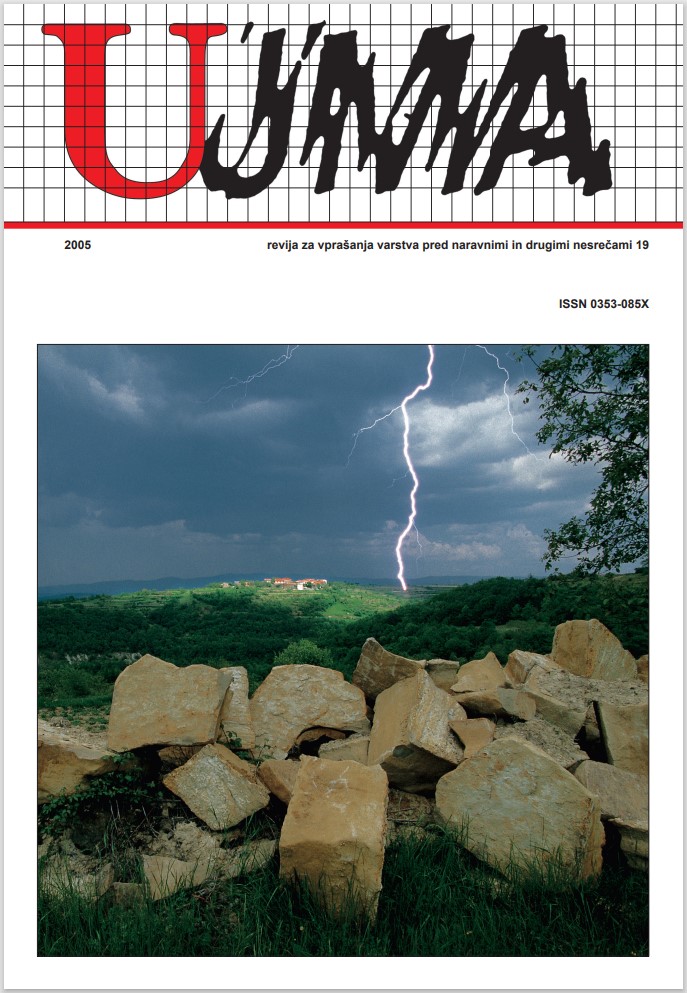TYPICAL PROBLEMS IN CRISIS MANAGEMENT
Abstract
Crisis management generates a whole array of problems, which need to be taken into account in the process of building a modern national crisis management system. In the phase of collecting information and crisis warning, the problems of too little or too much collected information and neglecting or disregarding early crisis indicators are evident. In the planning phase problems occur of unsuitable plans, the syndrome of always successful exercises that do not highlight deficiencies and limited interest of relevant decision-makers to participate in crisis management exercises. Many inter-organizational problems are identified in the phase of crisis decision making, such as strategic avoidance of responsibility in crisis, problems of unclear responsibility, different organisational cultures, problem of coordinating the coordinators, inter-organisational competition and conflict, etc. The problem of selective learning is a key problem in the phase of post-crisis learning. The article provides a short analysis of all the identified problems by specific phases of crisis management.
References
Alter, C. in Hage, J., 1993. Organizations Working Together. Sage Publications, London.
Boin, A., in Lagadec, P., 2000. Preparing for the Future: Critical Challenges in Crisis Management. Journal of Contingencies and Crisis Management Research, let. 8, št. 4.
Castenfors, K., 2001. Diagnosing Crisis Management: Presentation of an Instrument for Diagnostic Observation and Inquiry into Peacetime Social Crises. Swedish Defence Research Agency, Stockholm.
Cockell, J., 1998. Toward Response-Oriented Early Warning Analysis. V: Davies, J., in Gurr, T. R. (ur.): Preventive Measures: Building Risk Assessment and Crisis Early Warning Systems. Rowman & Littlefield Publishers, Lanham.
Davies, J., in Gurr, T. R., 1998. Preventive Measures: Building Risk Assessment and Crisis Early Warning Systems. Rowman & Littlefield Publishers, Lanham.
Dimitrichev, A., 1998. The Role of Early Warning. V: Davies, J., in Gurr, T. R. (ur.): Preventive Measures: Building Risk Assessment and Crisis Early Warning Systems. Rowman & Littlefield Publishers, Lanham.
Dixon, J., 1984. National Security Policy Formulation: Institutions, Processes, and Issues. National Defense University, Washington D.C.
Gentry, J., 2000. Complex Civil-Military Operations. Naval War College Review, let. 53, št. 4.
Granot, H., 1999. Emergency Interorganizational Relationships. Disaster Prevention and Management, let. 8, št. 1.
Heinzen, B., 1996. Crisis Management and Scenarios: the Search for an Appropriate Methodology. Ministry of Home Affairs, The Hague.
Hillyard, M., 2000. Public Crisis Management: How and Why Organizations Work Together to Solve Society’s Most Threathening Problems. Writers Club Press, San Jose.
Jefferson, C., 1998. Information Sharing and Early Warning. V: Davies, J., in Gurr, T. R. (ur.): Preventive Measures: Building Risk Assessment and Crisis Early Warning Systems. Rowman & Littlefield Publishers, Lanham.
Jervis, R., 1997. Complex Systems: the Role of Interactions. V: Alberts, D., in Czerwinski, T. (ur.): Complexity, Global Politics, and National Security. National Defense University, Washington, D.C.
Korac - Boisvert, N., in Kouzmin, A., 1994. The Dark Side of Info-Age Social Networks in Public Organizations and Creeping Crises. Administrative Theory and Praxis, let. 16, št. 1.
Malešič, M., 2003. Uvod – Vsebinska in metodološka izhodišča raziskave. V: Malešič, M., Polič, M., Prezelj, I., et al.: Poročilo raziskovalnega projekta Upravljanje in vodenje v kriznih razmerah. FDV, Ljubljana.
Maxfield, R., 1997. Complexity and Organization Management. V: Alberts, D., in Czerwinski, T. (ur.): Complexity, Global Politics, and National Security. National Defense University, Washington, D.C.
Mitroff, I., 1994. The Role of Computers and Decision Aids in Crisis Management: A Developer’s Report. Journal of Contingencies and Crisis Management Research, let. 2, št. 2.
Payne, C., 1999. Contingency Plan Excercises. Disaster Prevention and Management, let. 8, št. 2.
Prezelj, I., 2004. Sistem kriznega menedžmenta v sodobni državi. FDV, doktorska disertacija.
Peters, G., 2001. Concepts and Theories of Horizontal Policy Management. Paper presented at the Conference on Policy Coordination, April, Taipei.
Quarantelli, E., 1989. How Indivuduas and GroupsReact During Disasters: Planning and Managing Implications for EMS Delivery. DRC Paper, University of Delaware, Newark.
Quarantelli, E., 2000. Disaster Planning, Emergency Management and Civil Proitection: the Historical Development of Organized Efforts to Plan and to Respond to Disasters. DRC Paper, University of Delaware, Newark.
Rosenthal, U., 1986. Nine Dilemmas of Crisis Management. V: Proceedings from the International Conference on Crisis Management at the National Level. March 20–22, Stockholm.
Rosenthal, U., in Kouzmin, A., 1997. Crises and Crisis Management: Toward Comprehensive Government Decision Making. Journal of Pubic Administration Research & Theory, let. 7. št. 1.
Rosenthal, U., Charles, M., in T’Hart, P., 1989. The World of Crisis and Crisis Management. V: Rosenthal, U., in T’Hart, P. (ur.): Coping with Crises: The Management of Disaster, Riots and Terrorism. Charles Thomas, Springfield.
Rosenthal, U., Charles, M., T’Hart, P., Kouzmin, A., in Jarman, A., 1989. From Case Studies to Theory and Recommendations: A Concluding Analysis. V: Rosenthal, U. in T’Hart, P. (ur.): Coping with Crises: The Management of Disaster, Riots and Terrorism. Charles Thomas, Springfield.
Russet, B., in Starr, H., 1996. World Politics: The Menu for Choice. W. H. Freeman and Company, New York.
Salmon, T., in Alkadari, R., 1992. Crises, Crisis Management and Crisis Prevention. V: Carey, R., in Salmon, T. (ur.): International Security in the Modern World, St. Martin’s Press, New York.
Sourbag, B., 1995. The Use of Scenarios by Government for Crisis Management, The Use of Scenarios for Crisis Management, Crisis Management and Fire Service Directorate, The Hague.
Stern, E., 1999. Crisis Decisionmaking: A Cognitive Institutional Approach. Universtiy of Stockholm, Stockholm.
T’Hart, P., 1996. Simulations and Scenarios in Crisis Management Planning. V: Proceedings from the International Conference on Crisis Management at the National Level. March 20–22, Stockholm.
T’Hart, P., Rosenthal, U., in Kouzmin, A., 1993. Crisis Decision Making: The Centralization Thesis Revisited. Administration & Society, let. 25, št. 1.
Downloads
Published
Issue
Section
License

This work is licensed under a Creative Commons Attribution-NonCommercial-NoDerivatives 4.0 International License.
The articles are made available to the public under Creative Commons Attribution-NonCommercial-NoDerivatives 4.0 International (CC BY-NC-ND 4.0).


